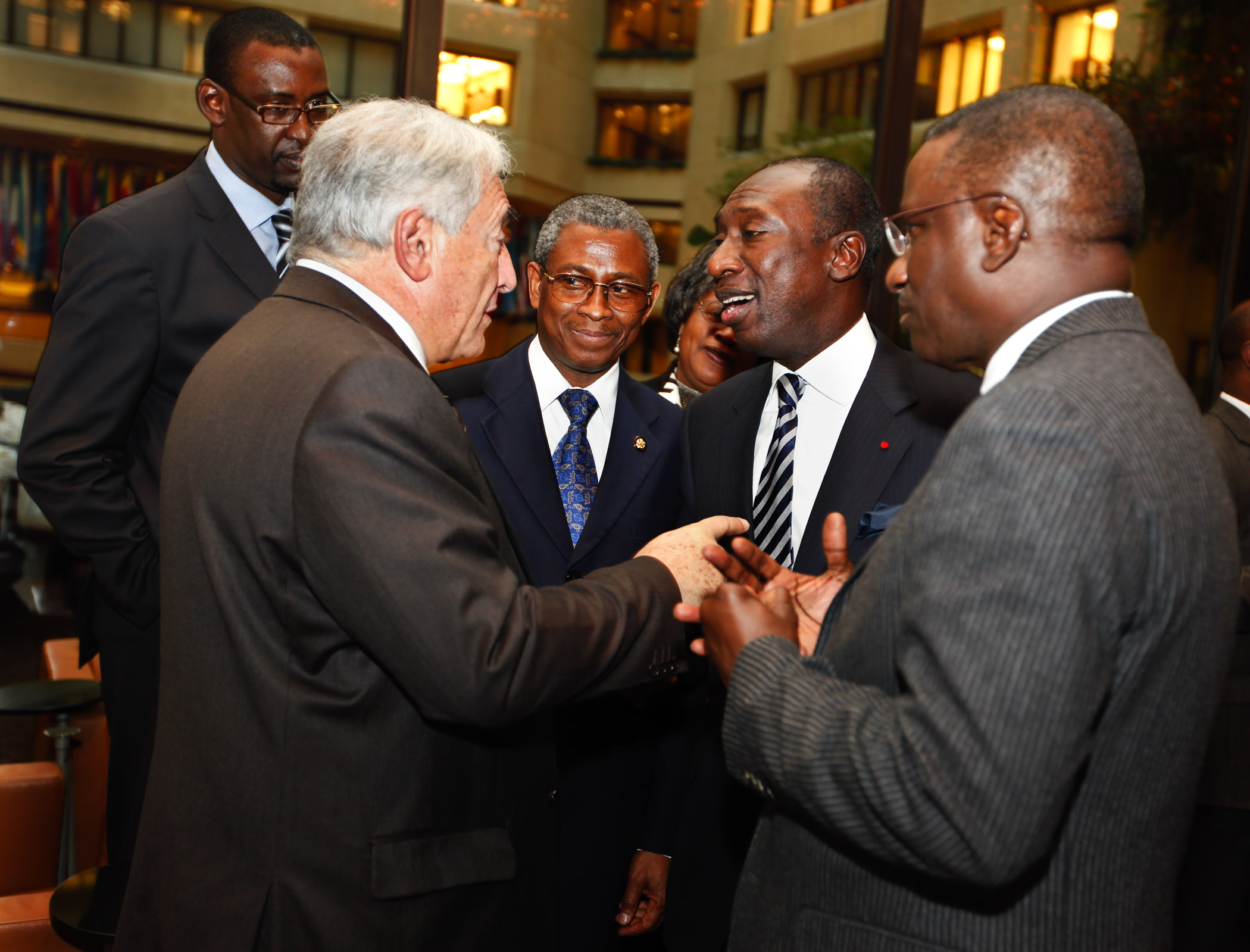G-20 'Stimulus' for the commodity sector can aid economic recovery in Africa
Dar es Salaam, March 10- -The global structure of commodity markets has changed little over the past few decades. And considering the performance of the commodity export sector in Africa, in terms of levels and composition of the continent’s exports has not substantially improved either, certainly the time has come to reshape the international economic architecture, according to Managing Director, Amb. Ali Mchumo.
Amb. Mchumo was one of the featured speakers at the Africa-IMF High Level Conference on- - Changes: 'Successful Partnerships for Africa’s Growth Challenge’, which was jointly hosted by the Government of Tanzania and the International Monetary Fund (IMF), March 10-11, in Dar es Salaam.
In his statement for the panel on: Managing Commodity Price Shocks Effectively, Amb. Mchumo said overall performance of the commodity export sector in Africa fell short of expectations and improvements have been marginal, relative to the experience of other developing regions.
He said, "To put this in a rather dire context, you may note that no country in Sub-Saharan Africa, has planted 10,000 hectares in one year of any commodity crop (coffee, cocoa, rubber, palm oil, tea, cashew, mango etc) in the last twenty years."
Financial assistance mechanisms are urgently needed in the face of sharp reduction in commodity prices such as coffee and cotton. In addition to the commodity price decline and its effect in government revenue and income levels, slow economic growth, reduction in foreign aid, decreases in foreign investment and exports, and growing difficulties in accessing financial capital markets presents a bleak picture for the years ahead. If at all, for these reasons alone, the international community must be ready to act now.
Amb. Mchumo stated the commodity sector in Africa countries has not kept pace with productivity improvements with the rest of the world and as a result it is less competitive than other regions. Consequently, when prices decline, incomes are quickly reduced below cost for the producers.
The Managing Director added that more productive countries make profits even at reduced price levels, because they produce and market products at lower unit cost, which is not the case in many countries in Africa.
"When commodity prices decrease, as is the current situation, they become a severe constraint and burden, not only to farmers, who face declining incomes, but also governments, who must struggle with downturns and reduced revenues."
Calling for more global financial intervention and mobilisation of additional donor resources to support commodity development institutions, such as the Common Fund, Amb. Mchumo noted that recent commodity shock relief measures, including those by the European Commission (under the STABEX system) and the IMF, under the Compensatory Financing Scheme, have not effectively protected vulnerable countries, especially those representing LDCs membership of the Fund.
"In this regard, new initiatives need to be taken-up to address relevant issues of vulnerability, including shocks related to natural or climatic hazards, external finance shocks or market instability, and in particular, volatility of commodity prices, which remains one of the main factors behind the vulnerability and growing poverty in low-income countries," he said.
For the Common Fund for Commodities and its member-countries, there is now full conviction, that commodity policy issues must be brought to the centre of the international development agenda, since policy solutions to problems facing producer countries, will contribute to response capacities of governments in Africa to rapidly address challenges imposed by the current crisis.
"We must ensure the achievements and gains made in Africa over the last decade are not reversed. The view that African countries are only marginally affected due to weak integration in the international financial system is misplaced. This conference is an opportunity platform, where needed proposals and actions can be advanced and adopted, so that Africa can ably manage the current crisis facing the world," said Amb. Mchumo.

